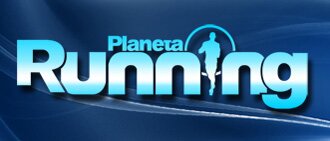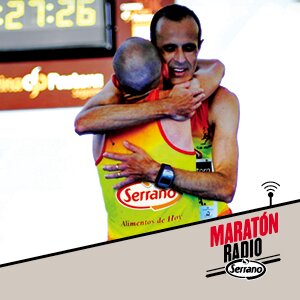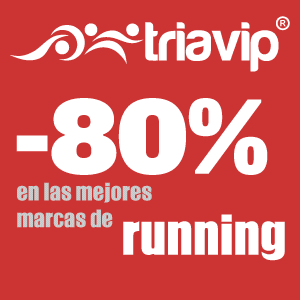What To Eat One Hour Before A Run
As you gear up for your run, what you eat one hour prior can make a significant difference in your performance. It’s not just about filling your stomach; it’s about choosing the right fuel. Easy-to-digest carbohydrates are key, but do you know which snacks will provide the best boost? Understanding your options and timing can take your run to the next level. Let’s explore what you should consume for optimal energy.
The Importance of Pre-Run Nutrition
Pre-run nutrition is essential for optimizing performance and supporting endurance during running. Consuming easily digestible carbohydrates before a run can help sustain energy levels and minimize fatigue, which is particularly important for prolonged running sessions.
Foods such as bananas or energy bars are often recommended due to their ability to provide rapid energy without leading to gastrointestinal discomfort.
Hydration is also a critical component of pre-run preparation. It's advisable to consume approximately 500 ml of water two to three hours prior to running to help ensure adequate hydration levels and prevent the risk of dehydration during physical activity.
Individual tolerance to various foods may vary, so it's beneficial for runners to experiment with different options before race day. This practice can help identify which foods work best for them and contribute to effective performance.
What to Eat One Hour Before a Run
Eating the right foods before a run can impact overall performance, particularly in the hour leading up to the activity.
It's recommended to choose pre-run snacks that are high in easily digestible carbohydrates. Options such as bananas or toast with honey are appropriate, as they typically provide a quick source of energy without causing gastrointestinal discomfort.
A targeted carbohydrate intake of 15 to 30 grams is advised, and runners should also avoid foods that are high in fat and fiber, as these can slow digestion and lead to potential discomfort during exercise.
Energy gels are another viable option for quick fueling, as they're specifically designed to deliver carbohydrates efficiently prior to physical activity.
In addition to proper nutrition, maintaining hydration is crucial. It's advisable to consume 200 to 300 milliliters of water or a sports drink to effectively support hydration levels.
This pre-run preparation can help ensure that an individual is physically ready to engage in running, potentially enhancing overall performance.
Quick Energy Snacks for Runners
For runners, the selection of quick energy snacks can significantly impact performance. Consuming simple carbohydrates 30 to 60 minutes prior to running is recommended for optimal energy release. Bananas are a suitable choice, as they provide readily available energy that's easy to digest and minimizes the risk of gastrointestinal discomfort.
Toast with honey or jam can also be an effective source of carbohydrates, quickly replenishing energy stores. Granola bars and dates are alternatives that offer concentrated sugars, which can be beneficial for shorter, high-intensity workouts.
It's important to note that snacks high in fiber and fat should be avoided before running, as they may lead to digestive issues, potentially hindering performance.
Incorporating proper hydration is equally important to enhance performance and prevent dehydration. Runners should consider both nutritional content and timing when selecting snacks to ensure they meet their energy needs effectively.
Hydration Tips Before Running
Proper hydration is essential for optimal performance in running. To prepare adequately, it's recommended to consume between 500 to 600 ml of water approximately 2 to 3 hours before starting a run.
During the run, it's beneficial to hydrate every 10 to 20 minutes with 200 to 300 ml of water or an electrolyte drink, particularly for those engaged in longer distances.
Monitoring hydration levels can be effectively done by observing the color of urine; a pale straw color typically indicates proper hydration. However, it's important to avoid excessive fluid intake immediately before running to prevent gastrointestinal discomfort or impaired performance.
Incorporating electrolytes into your hydration routine can be advantageous, as these minerals help to replenish those lost through sweat, maintain fluid balance, and support energy levels.
Ensuring appropriate hydration helps prevent the adverse effects of dehydration, allowing for a more effective running experience.
Foods to Avoid One Hour Before a Run
When preparing for a run, it's important to consider dietary choices in the hour prior to the activity. High-fat foods, including fried items and rich sauces, should be avoided due to their potential to cause digestive discomfort during exercise.
Additionally, high-fiber foods such as beans and cruciferous vegetables may lead to bloating and stomach cramps, which can hinder performance. Spicy foods are also best omitted, as they may trigger gastrointestinal upset.
Sugary beverages, which often contain sugar alcohols, may have a laxative effect and could cause digestive issues.
Furthermore, consuming large meals before running can result in a feeling of heaviness, negatively impacting overall performance.
Therefore, it's advisable to keep pre-run meals light and easily digestible to optimize comfort and performance during the run.
Understanding Carbohydrates for Energy
Understanding carbohydrates is important, as they serve as the body's primary energy source, particularly during endurance activities such as running. Research indicates that consuming between 1 to 4 grams of digestible carbohydrates per kilogram of body weight before a run can effectively fuel muscle activity. Common sources of carbohydrates include fruits like bananas and commercial energy gels, which offer quickly accessible energy.
Glycogen stores, which are the body’s stored form of carbohydrates, can become depleted after approximately 90 minutes of continuous running. Therefore, adequate carbohydrate intake is crucial to maintain performance and delay fatigue.
It's also recommended to balance carbohydrate consumption with lean protein in a 4:1 ratio. This nutritional combination supports muscle recovery and optimizes energy availability during prolonged exercises.
Pre-Run Meal Ideas for Different Distances
Selecting an appropriate pre-run meal is important for optimizing performance, and the choice can vary based on the duration of the run. For runs lasting less than an hour, easily digestible snacks such as a banana or a slice of toast with jam can provide necessary carbohydrates for quick energy without risking gastrointestinal discomfort.
For runs extending beyond an hour, it's advisable to consume a small meal that includes both carbohydrates and protein. Examples of suitable options are a bagel spread with peanut butter or a bowl of oatmeal topped with fruit. These meals should ideally be consumed 30 to 60 minutes before the start of the run to allow for digestion.
It is essential to test various pre-run meal options during training sessions to determine what works best for your body and individual digestive tolerance.
Additionally, energy bars and simple carbohydrates, such as honey, can be effective for providing sustained energy during longer runs.
Adapting your pre-run nutrition strategy can make a significant difference in your overall running performance and comfort level.
Timing Your Pre-Run Snack
Timing your pre-run snack is a crucial aspect of optimizing performance. It's recommended to consume a pre-run snack approximately 30 to 60 minutes prior to running. This timeframe is conducive to digestion, which can help mitigate the risk of gastrointestinal discomfort during the run.
When selecting a pre-run snack, it's advisable to focus on options that are high in simple carbohydrates. A general guideline is to consume about 1-2 grams of carbohydrates per kilogram of body weight, which facilitates rapid energy availability. Common snack choices include bananas or energy gels, both of which are easily digestible and provide quick fuel.
Additionally, proper hydration is essential. Consuming 200 to 300 ml of water or a sports drink before your run can enhance nutrient absorption and support overall performance.
Adequate hydration contributes to efficient calorie utilization and optimal digestion, further aiding in achieving your running goals.
Personalizing Your Pre-Run Nutrition Strategy
Personalizing your pre-run nutrition strategy is important for optimizing performance, as individual responses to food can vary significantly.
It's generally recommended to consume small snacks that are rich in easily digestible carbohydrates prior to running. Options such as bananas or energy bars can effectively provide quick energy sources.
The suggested intake of carbohydrates ranges from 0.5 to 1 gram per pound of body weight. This range aims to enhance energy levels while minimizing the risk of gastrointestinal discomfort during exercise.
It's advisable to experiment with various foods during training sessions to identify those that best suit your body’s needs.
It is also important to avoid high-fat foods immediately before running since they may lead to digestive issues.
Hydration is another key factor; consuming approximately 200-300 ml of water prior to exercise can help maintain fluid balance without causing bloating.
Conclusion
In summary, choosing the right snack one hour before your run can significantly impact your performance. Focus on easily digestible carbohydrates like bananas or toast with honey to fuel your energy levels without causing discomfort. Stay hydrated and avoid foods that might upset your stomach. By personalizing your pre-run nutrition strategy, you’ll set yourself up for success, ensuring a more enjoyable and efficient run. Remember, the right fuel makes all the difference!
| Redacción Director: Redactor-Jefe: Redactor: Director Comercial: Diseño: |
Colaboradores Área de Entrenamiento: Jerónimo Bravo y Miguel Ángel Rabanal. Área de Material: Fernando Chacón y Kike de Diego Álvarez. Área de Salud: Enrique García Torralba y Doctor López Chicharro. Área de Nutrición: Viviana Loria Kohen. Área de Carreras: Ignacio Mansilla. Área de Trail: Miguel Caselles, Juan Antonio Alegre y Juanma Agejas. |










